An electrician is an employee who is responsible for the installation and subsequent commissioning of electrical systems in residential, commercial and industrial buildings. The functioning of the power supply of buildings and structures, the quality of work of industrial electrical equipment directly depends on the professionalism of this specialist.
This is a fairly popular and at the same time responsible profession. In our review, we dwell in more detail on the features of the work of this specialist, the advantages and disadvantages of the specialty and the necessary requirements for professional and personal qualities.

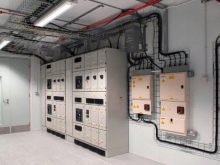
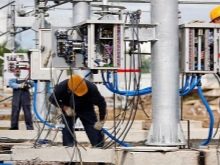
Description
The profession of electrician has a long history - it dates back to the period when electricity only broke into the life of mankind. The very first installers in Russia appeared in St. Petersburg at the end of the 19th century, when the Liteiny Bridge, formerly known as the Alexander II Bridge, was lit with lanterns. Since then, electricity has firmly entered the life of every person, not a single building and structure, not a single industrial, commercial, warehouse or office space can do without it.
The electric power supply system, as well as a significant number of devices operating from the mains, is available at almost every construction site. That is why the profession of electrician is widely in demand today.
This employee can carry out cable and overhead lines, installation, commissioning and maintenance of electrical equipment, as well as repair faulty sections of the power grid.
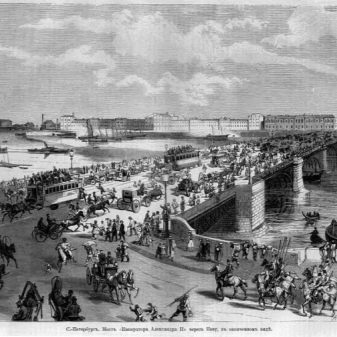
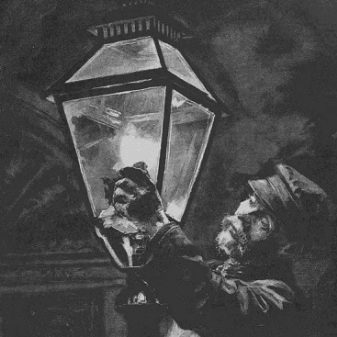
Depending on the functional responsibilities assigned to the specialist, his work at the facility is either constant when it is necessary to debug electrical equipment, or be temporary in case the electrician takes on only putting the facility into operation. It happens that they turn to the services of electricians occasionally - to carry out repairs in the event of equipment failure.
An electrician is a highly qualified specialist, he is responsible for the installation of intermediate systems that conduct electricity from generators to the final consumer. This includes the installation of electric motors, transformers, laying power lines and much more. Electricians work on secondary circuits, as well as with low-current systems, lighting networks, switchboards and switchgears.

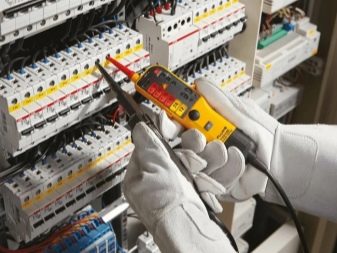
Like any other profession, the work of an electrician has its advantages and disadvantages. The main advantage of the profession is considered widespread demand. Nowadays, workers in this field are needed in all areas of life and in the manufacturing sector. Their services are required for the introduction of high-tech equipment, utilities, construction and engineering companies. Demand for such specialists is great in security and fire services.
The high demand for qualified electricians determines the high level of remuneration. Employers are ready to pay highly competitive salaries to professionals - electricians in our country earn about 50-60 thousand rubles. At the same time, a competent professional, striving for a high level of material well-being, always has a chance to receive additional income by providing his services privately to the population. By the way, the possibility of providing such services gives reason to mention one more advantage - electrician communicates with a huge number of people, often quite interesting - in this way he forms a list of “useful” contacts and can always turn to them in the future for help if necessary.


However, the profession has its drawbacks. We must not ignore the fact that when carrying out work in inadequate quality, the electrician puts at risk not only himself, but also other people. That is why the electrician in his work must carefully observe all safety rules, carry out the most careful control at all stages of installation and repair work. Keep in mind - if due to the fault of the electrician there will be an electric shock to strangers, then this worker will bear personal responsibility, up to the criminal.
The working conditions of the electrician cannot be called comfortable - often these workers are forced to carry out their duties at a considerable height, regardless of the weather on the street, to work in cold weather and in the summer heat. Even if all the work is carried out in the building, the electrician often solves a number of difficult tasks of a different order, for example, he moves electrical equipment, the total mass of which is several centners. The obvious disadvantages of the profession include a complex work schedule.
So, in the event of any accident, electricians are the first to go to the emergency site to eliminate the breakdown - this can happen not only during business hours, but also at night and on weekends.


Discharges
If in earlier times the functional duties of electricians were not very diverse and boiled down to the construction of the simplest electrical networks, nowadays these specialists can carry out the widest range of work - all of them are aimed at providing users with the necessary amount of electricity. The list of work that this or that specialist can perform is determined by his qualification level.
For example, an electrician of 3 category can be allowed to work with electrical equipment no more than 10 kW. And a specialist with a 5 access code gains the right to work with equipment above 20 kW, including the installation of powerful power plants, as well as special purpose units with complex electrical circuits, to work with power transformers.
However, it is important to keep in mind that regardless of the category of specialist, the primary responsibility of absolutely any installer is to strictly comply with the established safety rules.



How is it different from an electrician?
Many confuse the functionality of an electrician with the labor responsibilities of an electrician. Both experts work with power grids, and the similarity ends there. If we briefly talk about the difference between these specialties, then the electrician performs the adjustment of the wiring in the room or replaces it, and the electrician will already perform maintenance of this wiring at the end of the electrician’s work. Each employee is “imprisoned” for a specific group of skills needed to conduct a specific list of work.
For example, electrician focused on the work of the circuit designer. He carries out the creation of a wiring project at the facility, designing the cable route, drawing up a lighting scheme, as well as an outlet network. In his work, this specialist should first think about how convenient and practical the functioning of the power grid will be and how convenient and safe access for users to the basic elements of the electrical installation will be. He plans all his work taking into account the plan of other utilities (plumbing, water supply, ventilation, etc.).
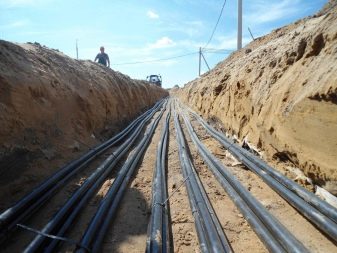

The electrician, in turn, is “imprisoned” for maintenance of electric networks. His job description includes the replacement of failed switches and sockets, repair of electrical wiring, simple steps to finalize it, the continuity of the circuit. That is, its purpose is to maintain the wiring in good condition and prevent the occurrence of its breakdown. This specialist is not required to make plans - he must determine the problem by the cod in the shield, and establish the source of the malfunction by blinking the light bulb.
It happens that an electrician is not able to do the work of an electrician and vice versa. Of course, there are always universal specialists. But in most cases, key functions are nevertheless registered for certain types of professional activity. Moreover, even the tools of an electrician and an electrician are different. So, the set of tools necessary for the electrician to do his job will occupy most of your room - you need punchers, wall cutters, vacuum cleaners, step ladders, ladders, as well as all kinds of tool boxes. An electrician wears everything that he needs in a small suitcase on his shoulder.


Responsibilities
In ETKS, the main labor duties of electricians are established. The duties of this specialist include:
- preparation of electrical equipment, tools, as well as consumables, various mounts and additional equipment (it will be required if the work will be carried out at a considerable height or, for example, underground) to complete the installation of the electrical system;
- implementation of mounting operations with mandatory compliance with safety regulations;
- installation of electrical systems and equipment in strict accordance with approved projects;
- adjustment of electrical systems, measuring, as well as test structures;
- elimination of the dangerous consequences of emergencies and power outages in a short time;
- monitoring the correct functioning of electrical appliances, as well as compliance by users of safety during their operation;
- installation of backup power supplies in a situation where there will be interruptions on the main power line.


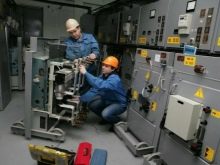
Despite the fact that the electrician belongs to the group of working specialties and sometimes performs labor duties underground or at height, nevertheless, it will not be entirely correct to classify the profession as physical labor. Intelligent work in this case is as important as the direct implementation of all the necessary actions.
Professional electricians always first carefully consider the manipulations to be performed, and only then carry them out in practice.


Requirements
Professional skills
In accordance with current professional standards, in order to fulfill the duties of an electrician, job seeker must have the following skills:
- work experience in the field of repair and maintenance of electrical equipment;
- work experience in the field of maintenance of electrical systems;
- experience in controlling the operation of electrical equipment;
- skills to ensure the smooth operation of production units;
- experience managing power systems.
This specialist should know the rules and safety standards and be able to monitor their implementation.

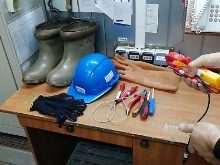

Personal qualities
It must be borne in mind that the activities of an electrician belong to the category of one of the most risky for health and life. That is why a specialist who works with electricity should be extremely responsible, very careful and extremely accurate. In addition, since electricians often have to work in the structure of production teams, then the presence of such important personal characteristics, such as:
- stress resistance;
- friendliness;
- sociability;
- attention to detail;
- tolerance;
- ability to find compromise solutions;
- diligence;
- ability to concentrate;
- technical savvy.


Note that among electricians, men predominate. Meeting women in this position is almost impossible. This is explained very simply - the work of these specialists is considered physically difficult, so not all adults and healthy people are able to cope with it.
Agree that, for example, only very hardy and strong men who have excellent coordination of movements and at the same time are absolutely not afraid of heights can repair the line at an elevation of about 10 m in bad weather.
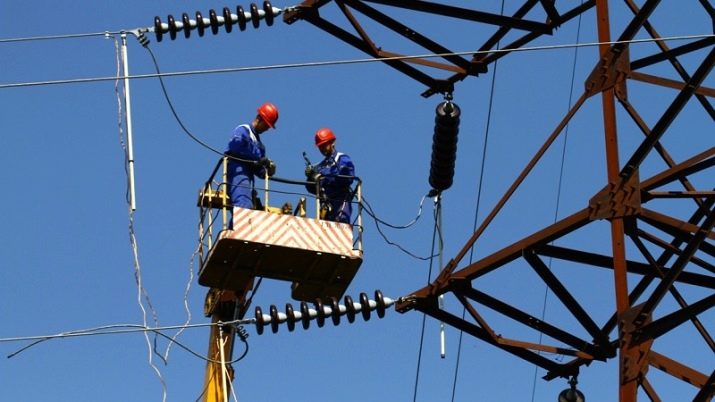
Training and career
In order to become an electrician, it is not necessary to receive a higher education, a specialized secondary is quite enough. Moreover, it can be basic or in-depth. However, there are a lot of training in specialties that are somehow related to this profile and that provide the necessary knowledge. Future electrician can be trained in the following programs:
- electrical engineering and electric power industry;
- electrician of electrical equipment and electrical networks;
- electrical installer;
- installation and commissioning of electrical equipment of civil and industrial buildings.
In other words, you need to look at what kind of related areas technical schools and colleges offer at the place of residence, and make a choice from the proposed programs. Typically, training is based on 9 or 11 years of school. Accordingly, it lasts from 1 to 4 years, it is possible to study on a full-time and part-time basis.
For admission to secondary secondary education it is not required to pass exams - an average grade point certificate is sufficient.



Place of work and salary
In fact, an electrician can self-actualize as a professional wherever technical personnel are required, who are versed in the conduct, commissioning, operation and repair of electrical equipment, including ship and aircraft.Typically, these are construction projects, homeowners associations and housing and utilities management companies, and enterprises providing repair services. The income of the electrician directly depends on how much work he does. In most cases, a competent specialist in this field has every chance to secure a very decent level of wages.
If you rely on the data of job sites, on average, the salary of an electrician in our country varies from 25 to 100 thousand rubles, while in the capital regions it starts from 40 thousand rubles. If desired, the specialist engaged in electrical work can increase his level of competence and claim higher salaries.
Also, after several years of work, he can go to a university, get a higher education, and due to this, the consequences take the position of team leader or instrumentation engineer in a company where he is a staff member or even open his own company.



See who the electrician is and what he does in the next video.










